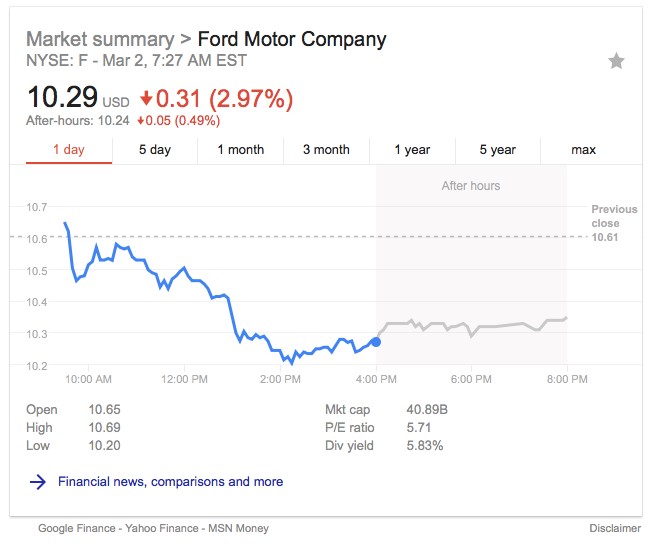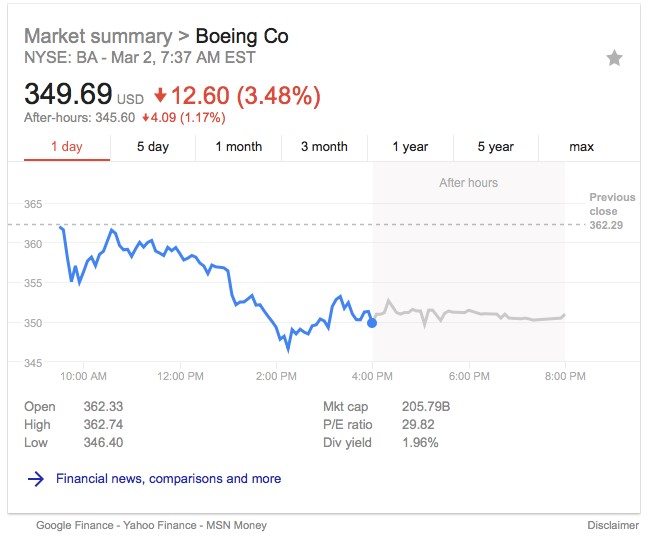Steel stocks may be riding high, but the trade-off for Trump’s huge tariffs on imports so far is a major market sell-off and vows of retaliation from Canada to China and Europe to Mexico that could have much wider economic implications.
Trump’s Thursday announcement that the U.S. will impose a 25-percent tariff on steel imports and a 10-percent tariff on aluminum imports promise no less than a global trade war, which Trump seems to welcome.
“Trade wars are good, and easy to win,” President Trump tweeted this morning.
The Dow closed down 420 points Thursday, with investors fearing that new life has just been breathed into the bogeyman of inflation thanks to widespread vows of retaliation across the world.
What’s good for steel isn’t necessarily good for the U.S. economy as a whole, and the new tariffs threaten to hit at profits for a wide range of U.S. exporters.
The Wall Street sell-off clearly indicates that the market thinks ‘smart’ tariffs are anything but, and the Dow might reel back even further when the tariffs are officially unveiled, as Trump has promised, next week.
The intention is clear: Last month, the U.S. Department of Commerce concluded an investigation showing that imported metal threatened national security by chipping away at the American industrial base. Steel jobs have also been a problem. The Bureau of Labor and Statistics shows that the industry employs only 140,000 workers, down from 650,000 half a century ago. Related: The Federal Reserve's Perfect Unwind
In the meantime, steel stocks may have had a bump this week, but the wider market sell-off makes it a pyrrhic victory at best, especially for major steel users like Boeing and Ford. They were already taking a hit on domestic U.S. steel prices that have gone up 20 percent since the beginning of the year.

(Click to enlarge)

(Click to enlarge)
Trump’s steel tariffs will “adversely impact automakers, the automotive supplier community and consumers,” Japan’s Toyota said Friday morning, as its shares sunk over 2 percent.
While all the focus has been on China lately, the hardest hit by U.S. steel tariffs will be the top suppliers as of last year: Canada, Brazil, South Korea, Mexico and Russia. Additionally, Turkey, Japan, Taiwan and Germany will also reel from the tariffs.

(Click to enlarge)
They’re all lining up with reciprocal threats that could lead to a major global trade war.
Canada and the European Union have promised their own tariffs in response, and Mexico, China and Brazil are working on retaliation.
Europe, which says the tariffs will risk thousands of European jobs, has vowed to take the fight to the World Trade Organization. Germany’s steel industry will be hardest hit on the continent.
"The EU has been a close security ally of the U.S. for decades. We will not sit idly while our industry is hit with unfair measures that put thousands of European jobs at risk," European Commission President Jean-Claude Juncker said in a statement.
Threats have yet to take specific shape, though, as the world waits to see if Trump will actually carry through with the tariffs amid strong opposition—even from his allies in Washington.
By Charles Benavidez for Safehaven.com
More Top Reads From Safehaven.com:
















